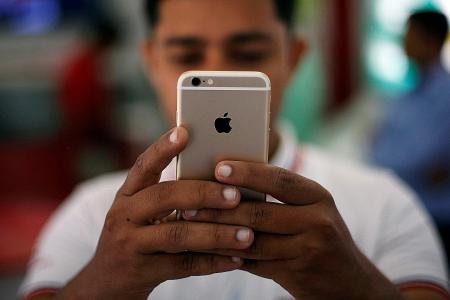Dads can get post-natal depression too
It's not just mothers who can get post-natal depression. A new study published in JAMA Psychiatry has found that fathers can, too.
Researchers from the University of Auckland studied close to 4,000 men and found that about 6 per cent had elevated depression symptoms at some point during their partners' pregnancies, or in the nine months after the birth.
The men's depression symptoms during their partners' pregnancy were linked to stress or poor health.
After childbirth, symptoms were more likely in men who felt stressed during the pregnancy, were no longer in a relationship with the child's mother, rated their health as only fair or poor, were unemployed or had a history of depression.
Past research had linked depressed fathers to their children's emotional and behavioural problems.
While Dr Lisa Underwood cannot say for sure that symptoms of depression can lead to other poor health or other issues, or vice versa, she told Reuters Health: "It definitely points to the fact that we need to be giving couples more support."
She added: "I think it's important for couples to be aware that either of them can be depressed and they should be seeking help and seeking support."
Apps can transform smartphones into medical devices
Smartphones are revolutionising the diagnosis and treatment of illnesses, thanks to add-ons and apps that transform them into medical devices, according to researchers.
"If you look at the camera, the flash, the microphone... they all are getting better and better," said Professor Shwetak Patel, engineering professor at the University of Washington.
"In fact, the capabilities on those phones are as great as some of the specialised devices," he told the American Association for the Advancement of Science (AAAS) annual meeting last week.
DIAGNOSTIC TOOLS
Smartphones can already act as pedometers, count calories and measure heartbeats. But mobile devices and tablets can also become tools for diagnosing illness.
"You can use the microphone to diagnose asthma, COPD (chronic obstructive pulmonary disorder)," Prof Patel said. "With these enabling technologies you can manage chronic diseases outside of the clinic and with a non-invasive clinical tool."
It is also possible to use the camera and flash on a mobile phone to diagnose blood disorders, including iron and haemoglobin deficiency.
"You put your finger over the camera flash and it gives you a result that shows the level of haemoglobin in the blood," Prof Patel said.
An app called HemaApp - introduced in 2016 - performed comparably well as a non-smartphone device for measuring haemoglobin without a needle.
Researchers are seeking approval from the US Food and Drug Administration for its wider use. Smartphones can also be used to diagnose osteoporosis, a bone disorder common in the elderly.
Just hold a smartphone, turn on the right app in hand and tap on your elbow.
"Your phone's motion picture sensor picks up the resonances that are generated," Prof Patel said. "If there is a reduction in density of the bone, the frequency changes, which is the same as you will have in an osteoporosis bone."
Such advances can empower patients to better manage their own care, he said.
"You can imagine the broader impact of this in developing countries where screening tools like this in the primary care offices are non-existent," he said.
"So it really changes the way we diagnose, treat and manage chronic diseases."
- AFP
Get The New Paper on your phone with the free TNP app. Download from the Apple App Store or Google Play Store now



